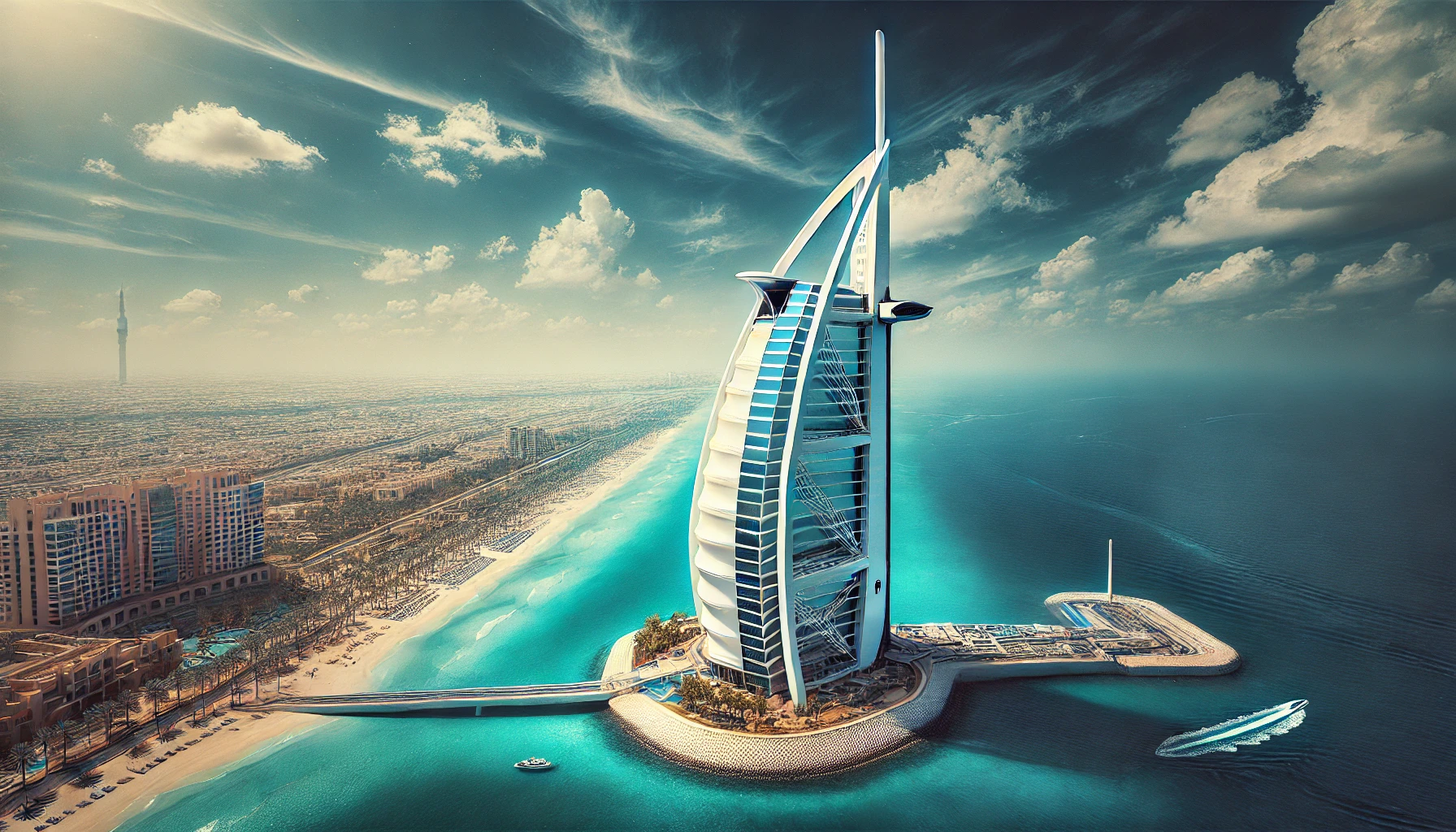Dubai is one of the most iconic cities in the world, known for its modern architecture, luxury shopping, and rich cultural heritage. Located in the United Arab Emirates (UAE), Dubai is a global city that attracts millions of tourists and business professionals every year. In this article, we will explore where Dubai is situated, its time zone, language, culture, and more.
Location of Dubai
Dubai is situated on the southeast coast of the Arabian Peninsula, along the Persian Gulf. It is part of the UAE, which consists of seven emirates. Dubai is the largest city in the UAE, both in terms of population and economic importance. The city lies approximately 4,000 kilometers east of Cairo and around 1,300 kilometers south of Tehran. Its strategic location between Europe, Asia, and Africa makes Dubai a vital global hub for trade, tourism, and finance.
Time Zone in Dubai
Dubai operates on Gulf Standard Time (GST), which is UTC+4. This means Dubai is 4 hours ahead of Coordinated Universal Time (UTC). Unlike many other countries, Dubai does not observe daylight saving time. This consistent time zone is important for business dealings across various international markets.
Language Spoken in Dubai
The official language of Dubai is Arabic. However, due to its international nature and large expatriate population, English is widely spoken and understood throughout the city. In fact, English is commonly used in business, education, and tourism. Signs, menus, and important documents are often written in both Arabic and English. Additionally, Dubai is home to people from all around the world, so you’ll hear languages such as Hindi, Urdu, and Tagalog spoken in various communities.
Culture of Dubai
Dubai is a melting pot of cultures, with a diverse population made up of people from different parts of the world. The city’s culture is a mix of traditional Arab values and modern, cosmopolitan influences. Dubai’s residents respect Islamic traditions and customs, which are deeply embedded in daily life. However, the city is known for its tolerance and openness, making it a welcoming place for people of various religions and backgrounds.
Islam is the official religion of Dubai, and the city’s culture is influenced by Islamic principles. The call to prayer is heard five times a day, and many people observe practices such as fasting during the holy month of Ramadan. However, Dubai is also known for its liberal stance on issues like dress codes and alcohol consumption, provided it is done in licensed venues such as hotels and bars.
Dubai’s Economy
Dubai is known for its rapid economic growth, particularly in the last few decades. Once a small fishing village, the city has transformed into a global metropolis driven by industries such as real estate, tourism, trade, and finance. Dubai is home to some of the world’s tallest buildings, including the iconic Burj Khalifa, which stands at 828 meters.
The city is also a leading financial center in the region, with many multinational corporations establishing their headquarters there. Dubai’s economy is heavily dependent on tourism, which generates billions of dollars annually. Visitors come to explore the city’s attractions, shop in luxury malls, and experience the warm weather year-round.
Tourism in Dubai
Dubai is one of the world’s most popular tourist destinations. Tourists flock to the city to experience its modern attractions, sandy beaches, and vibrant nightlife. Some of the top tourist spots include:
- Burj Khalifa: The world’s tallest building, offering spectacular views of the city.
- Dubai Mall: One of the largest shopping malls in the world, featuring thousands of stores, an aquarium, and an ice rink.
- Palm Jumeirah: A man-made island shaped like a palm tree, home to luxurious resorts and upscale residences.
- Dubai Marina: A waterfront district lined with skyscrapers, restaurants, and shops.
- Desert Safaris: Visitors can experience the desert with dune bashing, camel rides, and traditional Bedouin dinners.
Dubai’s warm climate and the availability of luxury hotels and resorts make it a popular destination for those looking for a lavish holiday. Whether it’s shopping, dining, or exploring cultural attractions, Dubai has something for everyone.
Transportation in Dubai
Dubai has a modern and efficient transportation system. The city’s public transportation network includes the Dubai Metro, which connects key areas like Downtown Dubai, Dubai Marina, and Dubai International Airport. Additionally, buses and water taxis are commonly used for getting around. Taxis are easily available and relatively affordable, making it convenient for tourists and residents alike.
Dubai is also known for its luxury cars, and many residents and visitors enjoy driving high-end vehicles like Lamborghinis, Ferraris, and Rolls Royces. If you’re looking to experience something unique, you can even rent a luxury car for a day.
Conclusion
Dubai is a city of contrasts, where modernity meets tradition. From its strategic location on the Persian Gulf to its diverse culture, Dubai is a dynamic city that offers something for everyone. Whether you’re visiting for business or leisure, you’ll find that Dubai has a lot to offer. The city’s mix of cultures, luxurious lifestyle, and growing economy make it one of the most fascinating places to visit or live in the world.
Dubai’s location, time zone, language, culture, and attractions make it an important global hub. So, the next time you’re planning a trip or considering living in this vibrant city, you’ll be well-equipped with the essential knowledge about where Dubai is and what makes it so special.
